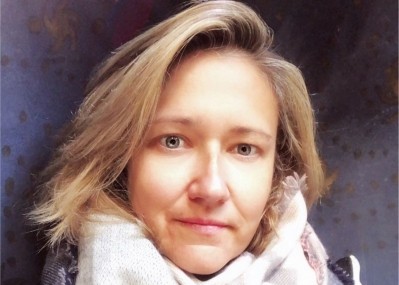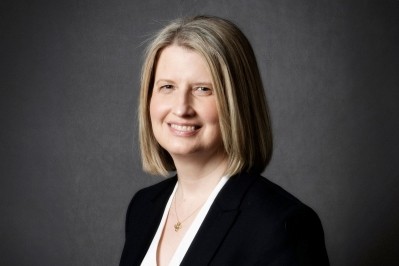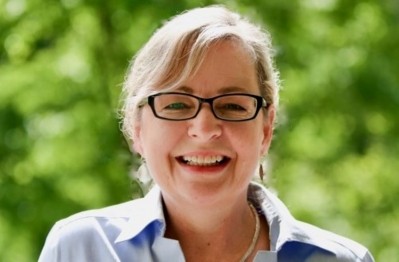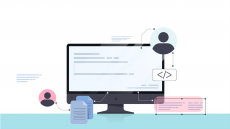Women in Science - Tehmina Masud - the importance of growing outside your comfort zone

With an inquisitive mind and by asking endless questions, she soon found herself studying medicine and fully understanding what her dad meant when he said the future of medicine lay within genetics, mathematics and computer science. Read our interview to find out how Tehmina ended up as vice president and head of target identification at Toronto-based TechBio, Deep Genomics.
Could you give us an overview of your work?
I lead a multidisciplinary team of statistical genetics and biology scientists, pioneering a new path for R&D. My team focuses on leveraging the company’s platform and AI/ML models to identify targets for drug discovery. Specifically, we work at the intersection of AI with biological sciences and drug development, where everyone contributes unique knowledge and perspective, enabling complex problem-solving and innovation. As a result, we are taking a new TechBio approach that enables partners to move faster and more predictably.
When did you realize you were interested in science - as a young child, teen, or older?
As a child, I was fascinated by science and grew up in a home environment that involved discussions about almost every decision. I learned to ask questions about outcomes and consequences and was drawn to problem solving. I had an inquisitive mind and was always questioning why things did or didn’t work.
Before my teenage years, my father, who was a physicist, gave me The Double Helix by James Watson, and a computer. He said that the future of medicine is genetics, mathematics, and computer science. He urged me to learn and study those areas. Later, as I pursued medical school, my interest in molecular biology and genetics grew exponentially, and I began to understand and truly appreciate what my father meant.
Could you describe your personal journey bringing us to where you are now?
I received my core education in Pakistan where I went to medical school because nearly everyone academically proficient went into medicine. I did a year of residency then took a year off and went to China on a scholarship to study Mandarin. When I returned to Pakistan, I realized a couple of things. First, that working in the clinic wasn’t right for me, and second, that Pakistan-based opportunities in basic research were limited. I didn’t know how to get into a US or UK program, so I started teaching molecular pathology at a medical school in Islamabad.
A friend was looking for a study partner for the GRE and since taking exams is something I enjoy, I joined him on the quest. After passing the GRE I received a Fulbright Scholarship to study human genetics at the University of Michigan, Ann Arbor, where I received my PhD. In 2013, I met Dr. Samuel Aparicio, who was doing pioneering work in single cell genomics and personalized cancer therapies at BC Cancer Agency in Vancouver. I then moved to Vancouver to pursue my postdoc studies. In 2019, I came across Deep Genomics. The company was looking for someone with a clinical background who worked in genomics and had wet and dry lab experience. It was everything I was looking for. After a few short weeks, I moved to Toronto, and I’ve been at Deep Genomics ever since.
What challenges did you face - as a woman or otherwise - along the way and what is the most valuable lesson you have learned?
As a woman of color raised in Pakistan, I experienced a lack of visible role models and mentors. Few shared similar backgrounds, which made it challenging to envision success. I have learned that adaptation to change is crucial. It’s essential to recalibrate and embrace risks to strive for progress continuously. Growth often lies outside of your comfort zone. Embracing change and taking risks is essential for achieving personal and professional success.
The lessons that resonate with me today include perseverance, focusing on doing your job well, adapting, and recalibrating. This includes changes in a new country, culture, and system. It is important to have this ability because not only will it help you thrive where you live, but it will also help you learn and change as groundbreaking developments such as AI become mainstream.
I also learned a great many things from my PhD supervisor, Dr. JoAnn Sekiguchi. Although she had just started her lab, she always made time for her students. She instilled the importance of scientific hypothesis building and work ethic. She is a truly inspiring scientist, and to this day, I apply her insightful lessons.
What ignites your passion in your current role?
I learn something new almost every day. It is not just a job requirement; it is a culture. At Deep Genomics, the people are extraordinary, and I’m always intellectually stimulated. From the first meeting at Deep Genomics, I understood and believed in the focus on multilingualism. For us, that means computational experts think about how their work impacts the ability to find more targets and molecules, and biologists think about data collection and scale. When team members understand each other, not only does it create a culture of collaboration, but it also fosters innovation.
What is your current work ethos/style?
My current work style revolves around developing efficiency and reproducibility through sustainable processes, and pipelines that minimize human errors and provide long-term value to the company.
I believe in starting with the end goal in mind, empowering individuals and teams to make early decisions that lay the groundwork for long-term impact. An important aspect of my approach is nurturing their growth into independent thinkers and leaders. I also focus on capturing and documenting institutional knowledge. If a team member is away, the effort should continue without disruption.
Lastly, my work ethos is grounded in “supervised independence,” which means knowing what team members are working on, providing guidance, and enabling autonomy. The hours and work style are always flexible. It is about the output.
Could you share some advice for young women starting to develop an interest in science or wanting to pursue a career like yours?
My advice is to pursue a field you are passionate about that lets you constantly learn, grow, and take risks. Be open to new opportunities and remain flexible about career paths, while staying aware of emerging trends. And, most importantly, never lose sight of your potential and strengths. Put away self-doubt and believe in yourself.



























